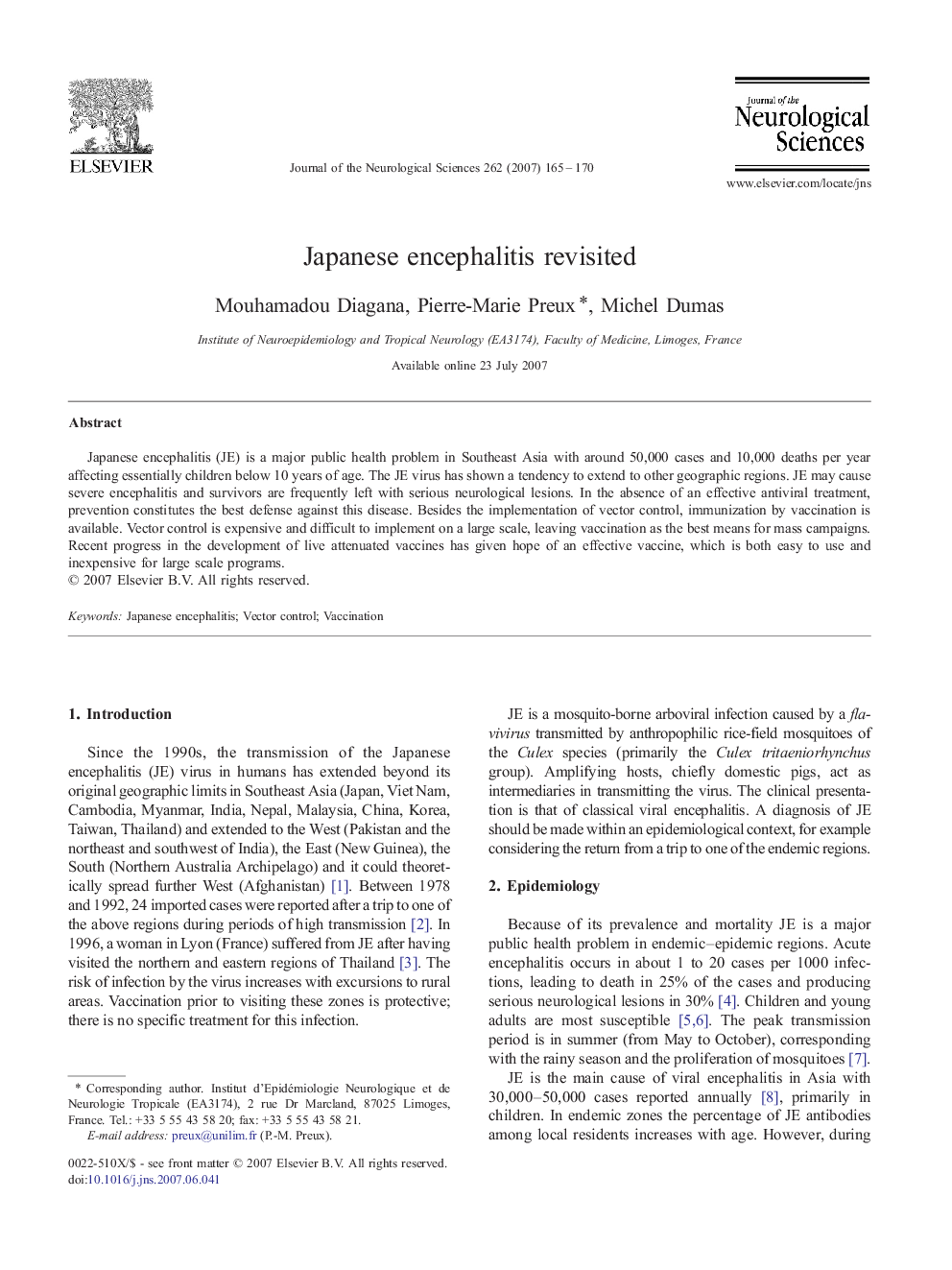| Article ID | Journal | Published Year | Pages | File Type |
|---|---|---|---|---|
| 1915886 | Journal of the Neurological Sciences | 2007 | 6 Pages |
Japanese encephalitis (JE) is a major public health problem in Southeast Asia with around 50,000 cases and 10,000 deaths per year affecting essentially children below 10 years of age. The JE virus has shown a tendency to extend to other geographic regions. JE may cause severe encephalitis and survivors are frequently left with serious neurological lesions. In the absence of an effective antiviral treatment, prevention constitutes the best defense against this disease. Besides the implementation of vector control, immunization by vaccination is available. Vector control is expensive and difficult to implement on a large scale, leaving vaccination as the best means for mass campaigns. Recent progress in the development of live attenuated vaccines has given hope of an effective vaccine, which is both easy to use and inexpensive for large scale programs.
